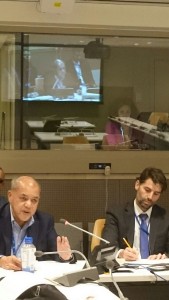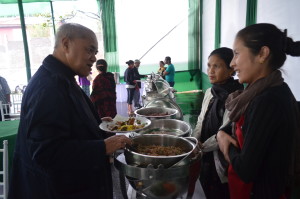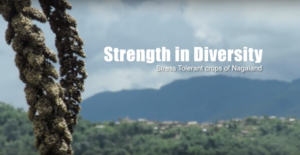It is with a sense of pride NESFAS shares its participation at the UN Asia Pacific Forum for SDG – APFSDG- 2023 Acceleration Pavilion taking place in Bangkok from the 27th to 30th March 2023.We are not just the only Indian but the only indigenous peoples’ organisation short-listed to have a booth at their Acceleration Pavillion, there was the presence other civil society Indigenous Peoples organisations and some IP orgasnisations from India present there, along with other UN agencies and partners who are working towards the sustainable development goals like UNICEF, UNDP, Stockholm Environment Institute (SEI), International Labour Organisation (ILO) and many others. The Short list was based on a concept paper shared on the organisations work and impact on the 2030 UN agenda combating climate change.
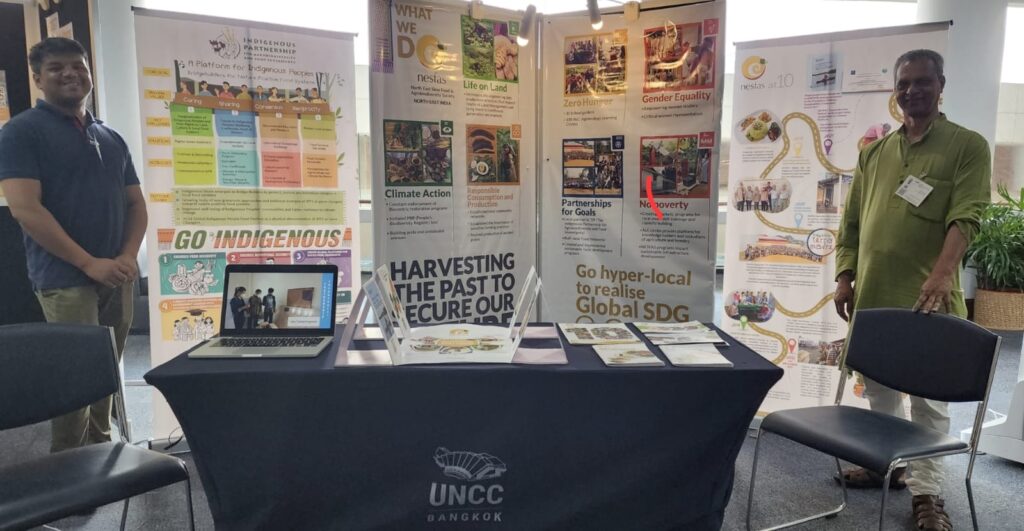
Our offering has been unique as we are presenting our communities’ works as nature-based solutions for global problems that Climate Change is churning out. The Indigenous Peoples Food System becomes an entry point to address SDG goals. At the exhibit we have showcased how NESFAS and Partner communities address at least 7 of the 17 goals. “Go Indigenous”is the shout out of the exhibit which marks out the SDGs as below with the solution offered by the timeless nature-based practices of traditional communities-
SDG1 – No Poverty
From providing market linkage for our local entrepreneurs and capacity building programs for rural youth, NESFAS programs also impact sustainable infrastructure development.
SDG 2- Zero Hunger
SDG 2 aims to end hunger, achieve food security, improve nutrition, and promote sustainable agriculture. NESFAS has established 30 school gardens and 100 Agroecology Learning Circles (ALCs).
SDG 5- Gender Equality
Advocating for critical women’s representation in different verticals and empowering women leaders in our local governance systems like the durbars.
SDG 12- Responsible Production and Consumption
NESFAS’s work towards this SDG involves promoting the consumption of locally grown, organic, and diverse food as well as establishing inter-community networks through community-led initiatives.
SDG 13- Climate Action
Encouraging the cultivation of traditional crops that are well adapted to local ecological conditions, and promoting sustainable farming techniques, and endorsing the Biocentric Restoration program alongside the People’s Biodiversity Register (PBR) tool.
SDG 15- Life on Land
Incrementally augmenting best production practices that respect the health and effective land management and tying them to livelihood generation and markets.
SDG 17-Partnership for Goals
Being a local partner to The Indigenous Partnership For Agrobiodiversity and Food Security, communities, and stakeholders to achieve its objectives. The organization recognizes the importance of partnership and cooperation in achieving sustainable development and works towards building strong alliances to promote sustainable food systems and livelihoods.
NESFAS is represented here by Dr. Dhrupad Choudhary, Consultant for Research, Innovation for Climate Change and Training and Rundolf Mawleh, Communications and Content Officer alongside Ajay Nayak, Consultant for communications and habitat initiatives.
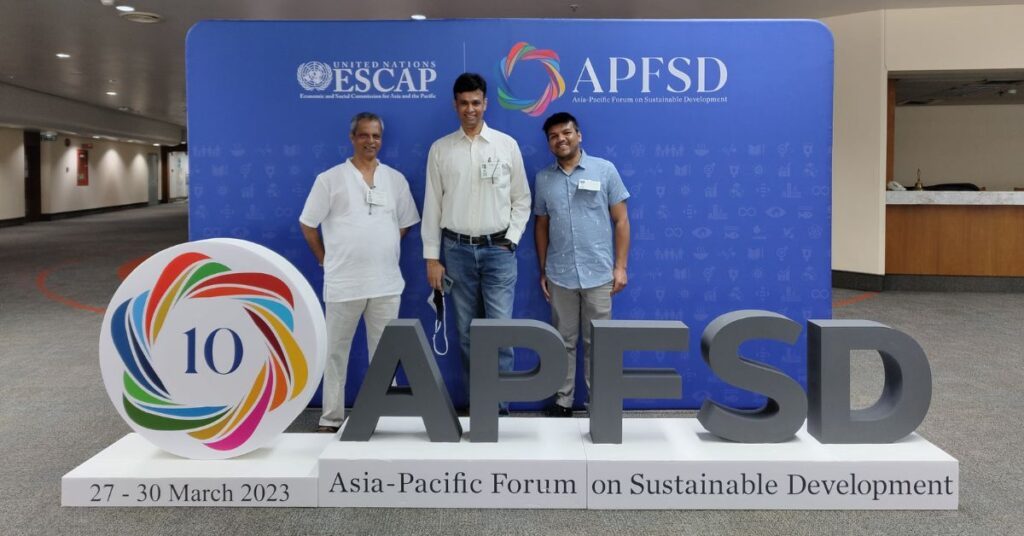
“Being part of a global event like this is an eye opener.” It’s good to be a part of this global platform, especially for an organisation like the United Nations. Also, meeting other indigenous organisations that share their mission and the work they’ve done in their respective communities is inspiring. The icing on the cake was when we had a peer from the Stockholm Environment Institute come up to our booth and say, “I came here to steal some ideas from your graphic design.” Said Rundolf Mawlieh, Content Officer, NESFAS
The Asia Pacific Forum for Sustainable Development is an annual SDG stock taking event organized by UNESCAP at Bangkok. The Forum brings together National governments, international agencies, research organizations, members of the civil society, practitioners and grassroot organizations. The Forum, through the Side Events and the Pavilion offers a regional platform to showcase innovations implemented by grassroot organizations and raise issues and concerns experienced. NESFAS has been fortunate to have participated in this platform and showcase the innovative interventions it has carried out with communities. The Forum also offered an opportunity to highlight the potential solutions Indigenous Peoples Food Systems can provide in response to the twin challenges of climate change and food and nutritional security. Says Drupad Choudhury, Consultant for Research, Innovation for Climate Change and Training.


